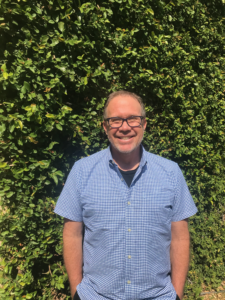When T read my latest blog, grief to anxiety and depression to adhd he told me that it was really well written, but he suggested I expand a bit more on the importance of adult diagnoses of ADHD. So, let’s hear an expanded story.
My journey to Ritalin was somewhat more complicated than I wrote last time. When I initially saw my primary care doctor, she prescribed a stimulant for ADHD. When I went to my pharmacy, I learned that my insurance wouldn’t cover it. If I’d been a minor, they would have filled my prescription, but since I’m an adult they wouldn’t. The message was clear: ADHD isn’t a diagnosis that adults get for the first time. It must be something else. I needed to see a psychiatrist for assessment.
TIME TO SEARCH
If any of you has tried to find a psychiatrist, you know that it can take a while. Fortunately, I quickly found someone whose office is near mine, and she was taking new patients. When I told her that I’d spoken to friends, colleagues, my regular doctor, my therapist, my wife and to a psychiatrist colleague, and they all think I have ADHD, she responded in a way that felt dismissive. She told me that it doesn’t make sense for an adult to be diagnosed for the first time. She wondered why I hadn’t been diagnosed sooner. On top of it, she said, “You’re a therapist. I’m going to use a different test than I ordinarily would.
Even though I thought I might have hit a dead end, I made an appointment. Like I said, it’s hard to find a psychiatrist with an opening in the near future. I considered that maybe I’d gotten the wrong impression on the phone, and she’d end up being neutral as she assessed me. Fortunately, I didn’t have to find out. She only works remotely, and it was very important for me to see the psychiatrist in-person. I found someone fairly quickly. She did a comprehensive evaluation and prescribed medication. It’s going well.
A CLOSER LOOK
The first psychiatrist’s comments about adult ADHD stuck in my mind, and I took the “Dr. Google” path. Although ADHD can first be diagnosed in adulthood, most of the time it was just missed in childhood. Looking at diagnostic criteria for childhood ADHD, I’m not the poster child, but my symptoms certainly met criteria.
So why was it missed? First, I was smart enough to do well in elementary school, regardless of my attention span. I probably zoned out and/or disrupted the class, but then tuned in long enough to do fine. I also masked it well. My mother is a social genius, and I learned social skills from her. I was always able to speak well to all my teachers and friends’ parents. I was extroverted and friendly, and I got by. I imagine some of my extroversion is thinly veiled hyperactivity. I was also an anxious child, and ADHD sometimes looks like anxiety. They often go hand-in-hand.
When I got to middle and high school, my grades were fine, but they likely weren’t as good as they could have been. Sure, I was social and had other priorities, but still, I should have done better. In hindsight, I’ve come to realize that I was an early and fast reader. But next to nothing I read sticks. In one door and out the other. It makes it hard to have stellar grades when you don’t retain what you read.
A life-changing event makes the discussion more nuanced. At age 17, I got in a car with a drunk driver. He wrapped our car around a pole, and I was almost killed. I was in a coma from a head injury for three days, and I’m epileptic now. This is pertinent, because the effects of a head injury can look very similar to ADHD. I think I’ve always had ADHD, but this head injury certainly exacerbates my challenges.
PUT IT ALL TOGETHER
Looking back through my adult life, I think there were always signs, but I think I covered them up well (or maybe I’m wrong.) I did well enough in the major areas of my life, so I never thought there was an issue. Sure, I was forgetful, and I drove my wife nuts, but on the surface, everything was ok.
At the same time, I sometimes felt like I was a bit different. I largely attributed it to being left-handed, and we just think differently. We solve problems differently. If it gets done, who cares how we get there. (Fun fact: to be precise, I’m what’s called cross-handed. I do about half of all things left-handed and 1/2 right. And a few equally well with both hands. Cross-handed people have double the likelihood of ADHD than the general population.)
In today’s terminology, I’m what’s called neurodivergent. Conditions such as ADHD, dyslexia and autism fall under the umbrella. In layperson’s terms, it refers to people who think and behave differently than people who are what’s called neurotypical. We all think and behave differently, but people who are neurodiverse interact with the world in a significantly different way than most.
The main reason I wrote this is many people feel like something just isn’t right. This may be a lifelong challenge. They think and do things differently than their peers, and they don’t know why. Rather than judge yourself for being different, try to accept that it’s ok to have a difference in learning style. And figuring this out, no matter how old you are, can help you navigate the world in ways that fit your learning style.
Have you been thinking about seeing a counselor but don’t know if it’d be right for you? Give me a call. I’ll walk you through it.
